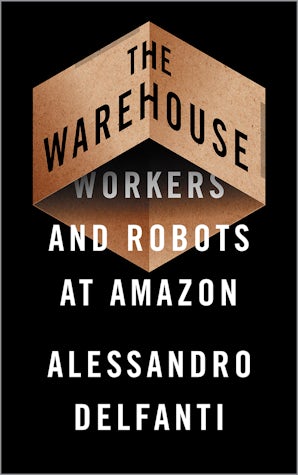An Afternoon With Amazon
Imagining Our Technological Future
Tue, 15 Feb 2022, 15:00 (CET)
Online event
Organised by Södertörn University, Stockholm
This seminar highlights two recent book publications that investigate Amazon as a company and place of technological innovation. Looking behind the scenes of Amazon, both books highlight the political, economic, and cultural role of the company in contemporary societies across the globe.
Julia Lindblom is a Swedish author and journalist at Arbetaren. In 2021, she published her widely received book Amazon – Behind the Success (Amazon – bakom framgången) with Verbal förlag.
Amazon – Behind the success
Amazon has turned its founder Jeff Bezos into the richest man in the world. Now the e-commerce giant has also established itself in Sweden. The company wants to show a culture of team spirit where employees “work hard, have fun and make history” and its logo forms a happy mouth. But behind smiling packages, hearty mottos and spicy events hides another reality. The success of the company also rests on broken backs, tough working conditions, precarious employment, extensive surveillance, and opposition from trade unions. The book is also a story about how the labor market is changing with growing e-commerce.
Alessandro Delfanti teaches at the University of Toronto. He is the author of The Warehouse (Pluto 2021), Introduction to Digital Media (Wiley 2019) and Biohackers (Pluto 2013).
The Warehouse. Workers and Robots at Amazon
‘Work hard, have fun, make history’ proclaims the slogan on the walls of Amazon’s warehouses. This cheerful message hides a reality of digital surveillance, aggressive anti-union tactics and disciplinary layoffs. Reminiscent of the tumult of early industrial capitalism, the hundreds of thousands of workers who help Amazon fulfil consumers’ desire are part of an experiment in changing the way we all work. In his book, Alessandro Delfanti takes readers inside Amazon’s warehouses to show how technological advancements and managerial techniques subdue the workers rather than empower them, as seen in the sensors that track workers’ every movement around the floor and algorithmic systems that re-route orders to circumvent worker sabotage. He looks at new technologies including robotic arms trained by humans and augmented reality goggles, showing that their aim is to standardise, measure and discipline human work rather than replace it. Despite its innovation, Amazon will always need living labour’s flexibility and low cost. And as the warehouse is increasingly automated, worker discontent increases. Striking under the banner ‘we are not robots’, employees have shown that they are acutely aware of such contradictions. The only question remains: how long will it be until Amazon’s empire collapses?
Amazon's despotic automation and surveillance technologies may well be its downfall


